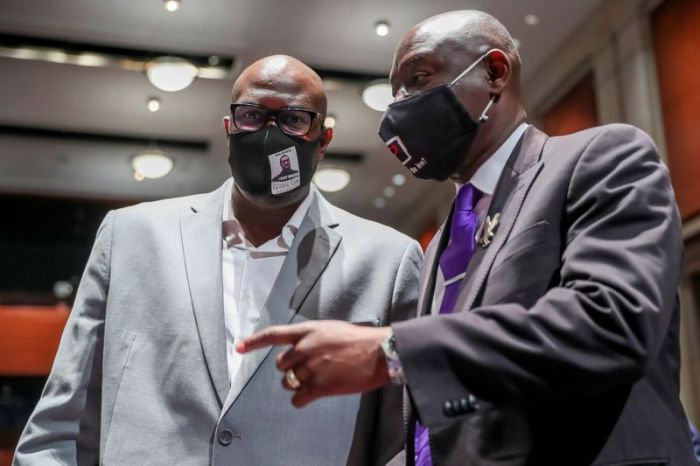WASHINGTON (Reuters) – U.S. Supreme Court Justice Ruth Bader Ginsburg was admitted to a hospital on Tuesday morning for treatment of a possible infection, a court spokeswoman said.
“The Justice is resting comfortably and will stay in the hospital for a few days to receive intravenous antibiotic treatment,” spokeswoman Kathy Arberg said in a statement.
Ginsburg, 87, was initially seen at a hospital in Washington, D.C., on Monday night after experiencing fever and chills. She underwent a procedure at Johns Hopkins Hospital in Baltimore on Tuesday afternoon to clean a bile duct stent that was placed last August.
Ginsburg, the court’s oldest justice, has had a series of health scares in recent years. In May she underwent nonsurgical treatment for a gallstone that had caused an infection.
Last November Ginsburg was admitted to a hospital for two nights while suffering from a fever and chills, but returned to work at the court the day after being released.
In August of last year, she underwent radiation therapy for pancreatic cancer. In November 2018, she broke three ribs in a fall. Subsequent medical tests led to treatment for lung cancer that caused her to miss oral arguments in January 2019. She had previously been treated for pancreatic cancer in 2009 and colon cancer in 1999.
The health of the liberal justice is closely watched because a Supreme Court vacancy could give Republican President Donald Trump the opportunity to appoint a third justice to the nine-member court and move it further to the right. The court currently has a 5-4 conservative majority.
The Supreme Court ended its nine-month term on July 9, after hearing a number of oral arguments by teleconference for the first time in its history in response to health concerns raised by the coronavirus pandemic.
The virus has proven to be particularly dangerous to the elderly and people with underlying medical conditions. Six of the court’s nine justices are 65 or older, and four are 70 or older.
(Reporting by Andrew Chung in New York and Makini Brice in Washington; Editing by Chris Reese and Matthew Lewis)
























